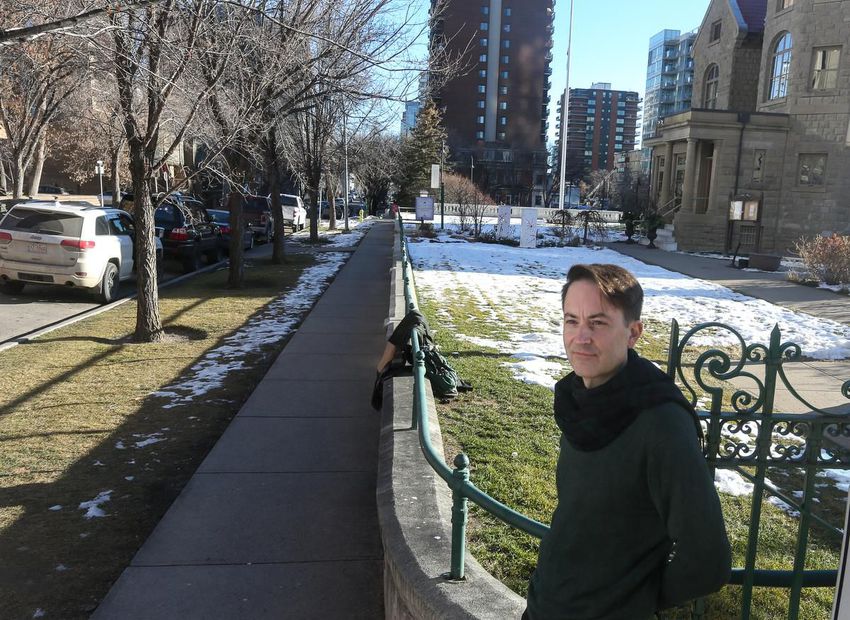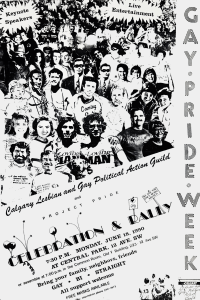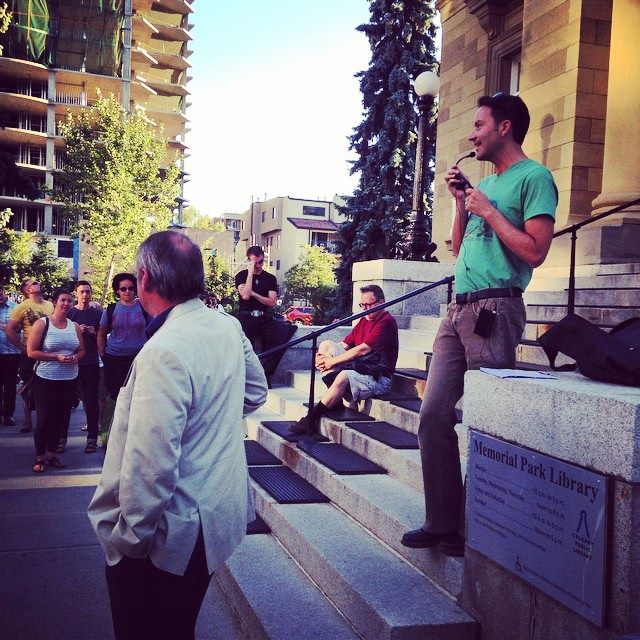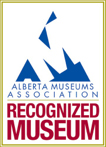Who made you an authority?

Written by Kevin Allen, member of our Community Advisory Committee for Lougheed House Re-Imagined.
The Calgary Gay History Project started in 2012 on a whim. I had a notion of wanting to learn more about the City’s LGBTQ2 past but was untrained as a historian. Moreover, I did not know where to begin. Asking seniors at the Calgary Pride Parade & Festival if they were from Calgary was where I started—dubiously. Now, many years later, some consider me an authority on the subject.
But what does being an authority mean? There have been some curious moments while learning my community’s history, which makes me cautious about using that word. These days I wonder about the authority of historians in general.
Early on in the process, I started leading gay history walks in the Beltline. I like placing history in the landscape (Lougheed House is one of my stops). Another stop is Central Memorial Park, the site of a 1990 Pride Rally, which became Calgary Pride’s origin event. In an interview with a community elder, I learned that the Rally began on the Memorial Park Library steps. For a few years, I started the history walk from those steps, thinking it was a poetic gesture. It turns out that the Rally actually took place at the Boer War Memorial in the centre of the park (I now have other accounts and a video to prove it). Yet, for years, I explained to hundreds of Calgarians that the Rally started in the wrong place.

Pride Week Poster | June 1990

Calgary historian and author of this post, Kevin Allen, giving a Gay History Walk at Memorial Park Library | 2014 | Photographer Unknown
This seems to happen frequently in historical research. What you “know” today might be different tomorrow. The truth can be a moving target.
Another aspect of being an authority is subtler.
My readers know I have spent a lot of time researching the life of Everett Klippert. Everett was a Calgary bus driver who was jailed in the 1960s for being gay and whose court case led to the decriminalization of homosexuality in Canada. I had the fortune of creating a popular short film, with local director Laura O’Grady, about Everett’s life. The way I told Everett’s story is particular to me; how I phrased it, what parts of the story I chose to emphasize, what I concluded.
A few times now, I have been in an audience where Everett Klippert’s story is recounted—just by happenstance. I have heard echoes of my phrases reflected back to me. In these instances, the speaker was not aware of my presence and sometimes had not even seen the film! The story has generated a life of its own and has perhaps passed into popular (queer) culture. I find the experience gratifying yet disorienting, and I question myself if I truly got Everett’s story right. I keenly feel how subjective history can be in these moments.
As a historian, I attempt to triangulate the truth. I prefer multiple sources that accord. When I find discrepancies—more frequently than you might think—I am cautious about what I write and say. I allow stories to change when new evidence comes to light, which sometimes feels disappointing. Calgary’s LGBTQ2 history is iterative; it is enhanced by multiple voices telling our stories, instead of a single authority.
We filter the world through our own experiences. I now keep that in mind when dealing with histories and historians.

Calgary historian and author of this post, Kevin Allen | 2015 | Photo courtesy of StarMetro Calgary
Kevin Allen has been documenting and profiling queer people and events for 30 years as a freelance writer. Kevin started the Calgary Gay History Project in 2012 to uncover and preserve stories from Calgary’s LGBTQ2 past.
Additional Resources
- Kevin’s book, Our Past Matters: Stories of Gay Calgary, can be purchased at the Lougheed House Shop
- The Gay History of Lougheed House
- Gross Indecency: The Everett Klippert Story
- 1990 Pride Rally in Calgary
We respect your privacy as per our Privacy Statement. We welcome your thoughtful and respectful comments, and your first name will appear with each submission. All comments will be moderated by Lougheed House before they appear on the site. We check for posts regularly and will respond as soon as we can. We do not guarantee that your comments will be published.
By submitting a comment, you accept that Lougheed House has the right to reproduce and publish that comment in whole or in part, in any form we choose. We do not endorse the opinions expressed in comments. Comments on this page are moderated according to our Submission Guidelines. Comments are welcome while open. We reserve the right to close comments at any time.


